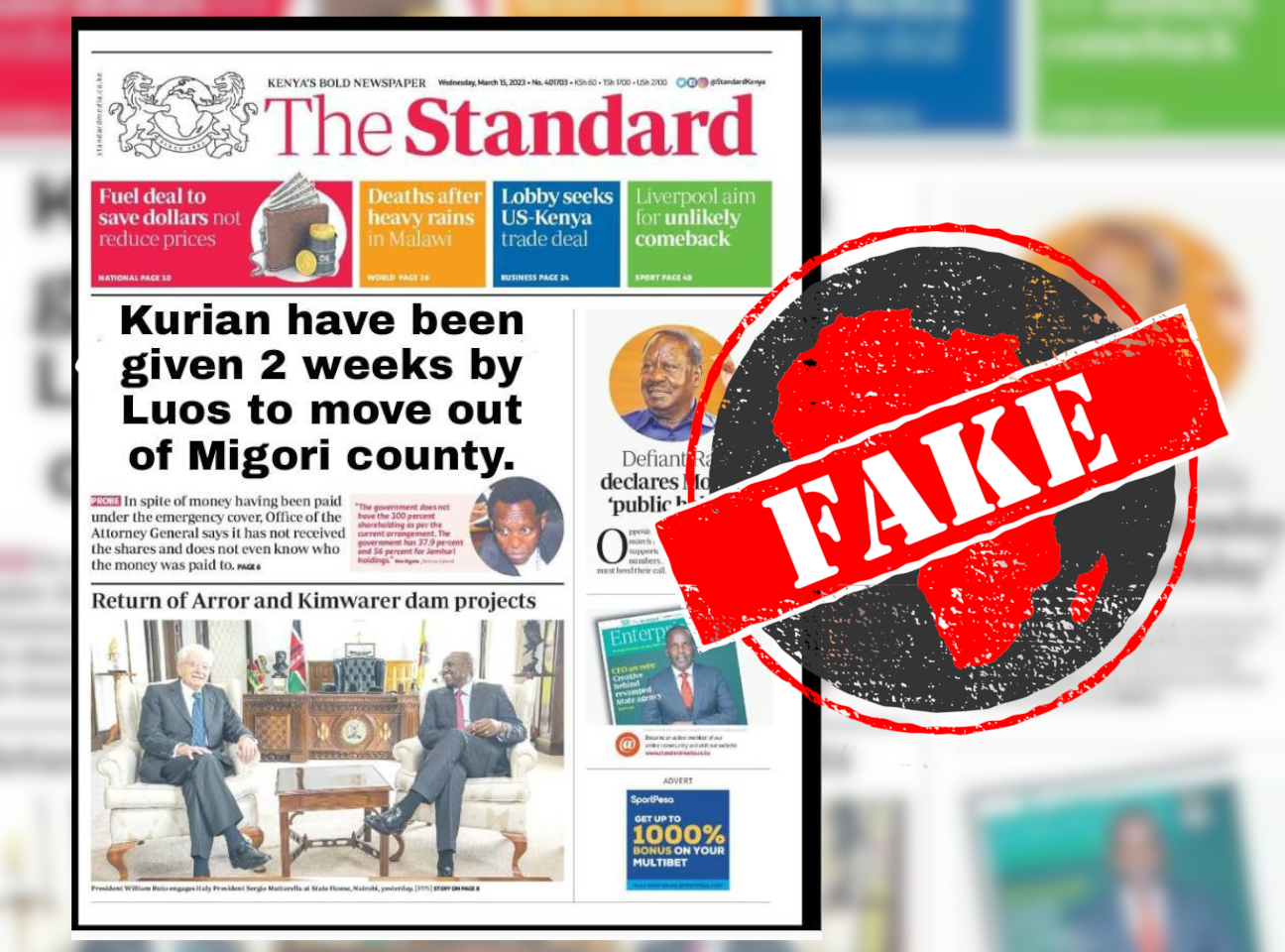IN SHORT: Did a national Kenyan newspaper report an intercommunal conflict in Migori county? No, it’s a fabricated headline and front page.
“Kurian have been given 2 weeks by Luos to move out of Migori county.” This is the headline of what appears to be the front page of Kenya’s Standard newspaper for 15 March 2023, posted on Facebook.
The Kuria people, also known as the Abakuria, belong to the Bantu linguistic group. They live in the southwestern Kenyan county of Migori, about 400 kilometres from the capital Nairobi. They are also found in neighbouring Tanzania.
Migori county’s population includes Suba-Luo, Luo, Kuria, Kisii and Luhya communities, according to the National Cohesion and Integration Commission (NCIC). There are also small numbers of people of Indian, Arab and Nubian origin.
According to the latest census there were 1.1 million people in the county in 2019, of whom about 305,000 were Kuria.
The biggest threat to peace and cohesion in the county, according to the NCIC, is cattle rustling.
But did the Standard newspaper really report on a new threat of tribalism? We checked.

Ignore fake front page
There is an immediate red flag in the image doing the rounds on social media. The lead paragraph is unrelated to the headline, and is about Kenya’s attorney general not receiving shares in something.
Using the Standard's epaper portal, we searched for the 15 March 2023 edition. We found that the headline on that day's genuine front page was different.
The real headline is ”Did Uhuru team pay Sh6b for air in Telkom deal?”.
The front page posted on Facebook has been manipulated. The Standard did not report that the Kuria community had been asked to move out of Migori county, and we found no evidence that this is true.
Republish our content for free
For publishers: what to do if your post is rated false
A fact-checker has rated your Facebook or Instagram post as “false”, “altered”, “partly false” or “missing context”. This could have serious consequences. What do you do?
Click on our guide for the steps you should follow.
Publishers guideAfrica Check teams up with Facebook
Africa Check is a partner in Meta's third-party fact-checking programme to help stop the spread of false information on social media.
The content we rate as “false” will be downgraded on Facebook and Instagram. This means fewer people will see it.
You can also help identify false information on Facebook. This guide explains how.


Add new comment